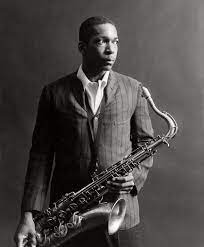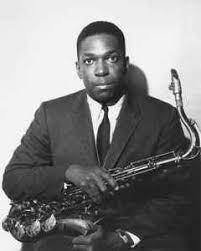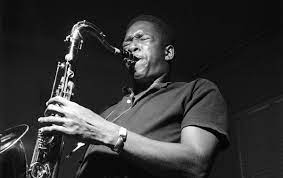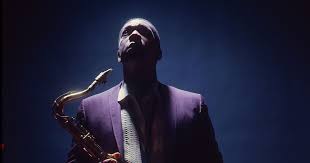By: Gabrielle Weeden
Overview of A Love Supreme
A Love Supreme, John Coltrane’s sanctified masterpiece, has been dissected, interpreted, and written about more than any other jazz record. It’s an album that’s been dubbed “The Bible” by Steely Dan’s Donald Fagen, and is often mentioned in hushed, reverent tones by its listeners. A Love Supreme is Coltrane’s hymn of praise to God, with a rare beauty that has surpassed any other album that John released during his brief yet fruitful career in terms of both sales and renown.


Who Is John Coltrane?
John William Coltrane was born on September 23rd, 1926 in Hamlet, North Carolina. In 1943, John’s mother brought him his first saxophone and his love for music began. John played the clarinet, alto horn, and saxophone throughout his high school years. In 1945, John enlisted in the Navy and quickly became one of the few Navy men to serve as a musician without having been granted musicians rating. Even though the Melody Masters (the base swing band for the Navy) were an all-white band, John assumed a leadership role within the band. After leaving the Navy in 1946, John launched into a music career and began touring with other musicians that he knew. For the next 20 years, John worked with many industry musicians and released a few songs. In 1962, John was apart of a quartet called the “Classic Quartet”. It was with his group that John would release the infamous album, A Love Supreme.

The Impact of "A Love Supreme"
A Love Supreme was written by John Coltrane as a four-part suite to accompany him on his journey to salvation. Coltrane had a life-changing epiphany in 1957, which saved him from alcohol and gave him a newfound sense of spiritual consciousness. The album was written in the style of a letter to the listener, with a poem expressing his sincere gratitude to God. Coltrane’s A Love Supreme, then, is the sound of him effectively weaving the artistic and spiritual threads of his life together
The album also gave rise to the genre known as “spiritual jazz,” which combines deep cosmic musings with experimental sounds to weave jazz, blues, gospel, folk, and eastern music together.


